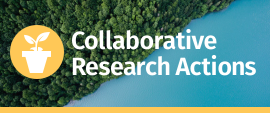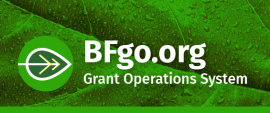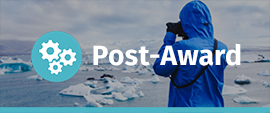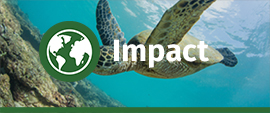The Belmont Forum
Established in 2009, the Belmont Forum is a partnership of funding organizations, international science councils, and regional consortia committed to the advancement of transdisciplinary science. Forum operations are guided by the Belmont Challenge, a vision document that encourages:
International transdisciplinary research providing knowledge for understanding, mitigating and adapting to global environmental change.
Forum members and partner organizations work collaboratively to meet this Challenge by issuing international calls for proposals, committing to best practices for open data access, and providing transdisciplinary training. To that end, the Belmont Forum is also working to enhance the broader capacity to conduct transnational environmental change research through its e-Infrastructure and Data Management initiative.
Since its establishment, the Forum has successfully led 19 calls for proposals, supporting 134 projects and more than 1,000 scientists and stakeholders, representing over 90 countries. Themes addressed by CRAs have included Freshwater Security, Coastal Vulnerability, Food Security and Land Use Change, Climate Predictability and Inter-Regional Linkages, Biodiversity and Ecosystem Services, Arctic Observing and Science for Sustainability, and Mountains as Sentinels of Change. New themes are developed through a scoping process and made available for proposals through the Belmont Forum website and its BF Grant Operations site.
How the Belmont Forum Works
Scientist and stakeholder support is made possible through Collaborative Research Actions (CRAs), which are the Forum equivalent of a call for proposals.
Each proposal submitted to a CRA theme in the Belmont Forum Grant Operations (BFgo) must consist of a project co-developed by natural scientists, social scientists, and stakeholders that hail from at least three countries. Stakeholder is used in its broadest sense in CRAs, representing the potential to co-develop and co-implement projects with communities, policymakers, business and industry, unionized bodies, tribal organizations, non-governmental organizations, and many others not listed here. Similarly, the Forum’s definition of social science includes the full breadth of social disciplines, including economics and the humanities. The research itself can take place within one or more countries anywhere in the world, but the team itself must be eligible for support from three funding organizations participating in the CRA.
Projects are merit reviewed and awards are made through coordinated funding from individual organizations. For example, a successful project team with participants from the U.S., South Africa, and Japan would be funded so that U.S. project members would receive funding from U.S. institutions at the same time that South African participants and Japanese participants would receive support from their respective institutions. We also partner with funders whose support can cross national boundaries. Details about eligibility and available support for interested applicants can be found in the organizational annexes for each call for proposals.
The Forum is open to a breadth of possible funding and support partnerships in its Collaborative Research Actions. Investment in a CRA is not limited only to Forum member organizations, nor is it constrained to only national fundamental research funding agencies and ministries. The Forum strives to make opportunities for interested supporting organizations to connect with the scoping process as early as possible to allow joint discussion and development of the Collaborative Research Action. However, it is possible for any organization providing either in-kind or monetary support to a CRA to join at any time in the development process. An organizational annex details each organization’s investment in the CRA, its particular interest in the theme, who is eligible for support, and the name of a program contact.
Note: not all Belmont Forum members participate in every CRA.
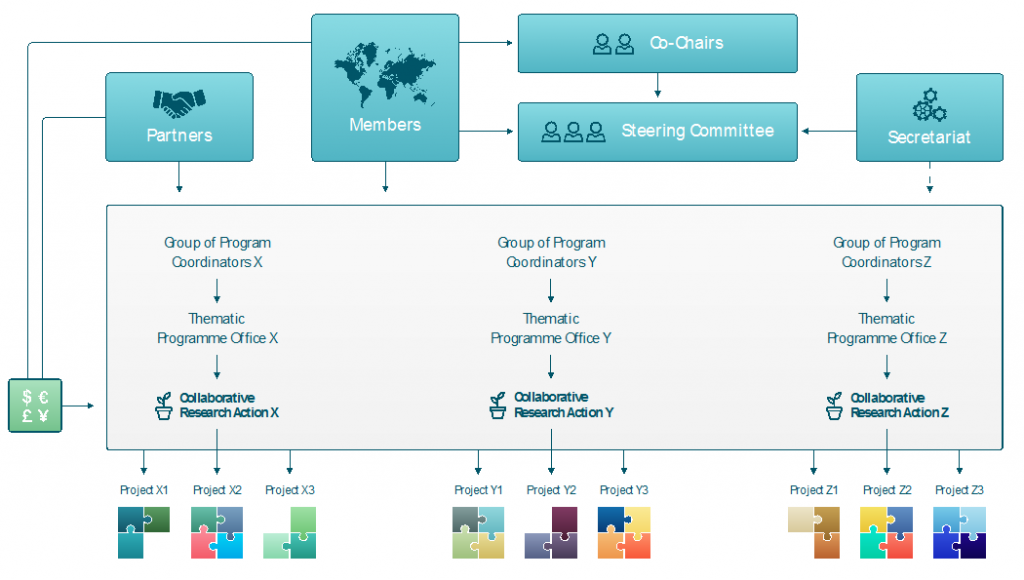
Open Data Policy and Principles
The Belmont Forum adopted its open data policy and principles at the Belmont Forum Plenary meeting in Oslo, Norway in 2015. The e-Infrastructures and Data Management team implemented these across all collaborative research actions to coordinate and promote access to transdisciplinary research data.
Glossary
Belmont Forum Challenge is the guiding statement for Forum activities. In 2017, a revised Challenge was approved by the membership to frame future actions of the Belmont Forum. It states that the Forum’s goal is:
To support international transdisciplinary research providing knowledge
for understanding, mitigating, and adapting to global environmental change.
BFGO is the acronym for the Belmont Forum Grant Operations website: https://bfgo.org/. This website is where proposals to Belmont Forum Collaborative Research Actions are submitted.
Belmont Forum Plenary (BF Plenary) is an annual meeting of the members, members-in-waiting, partners, and invited guests. At the plenary, Forum business, such as budgeting, strategizing, voting, and decision-making is conducted. The plenary is the primary meeting for decision making within the Belmont Forum and a different member hosts the meeting each.
Call is the overarching term for the process undertaken to fund proposals from the research community to address a Collaborative Research Action.
E-Infrastructure & Data Management Initiative is the implementation of the open data policy and principles adopted by the Belmont Forum in 2015. The Initiative is grouped into four action themes: coordination, data planning, use cases, and training. For further information, please see https://belmontforum.org/data.
External Reviewer is an external expert that provides a written peer review of a proposal. She/he works independently in her/his personal capacity and do not represent any organization.
Group of Program Coordinators (GPC) is the body responsible for the practical implementation of the Call. It is composed of one mandated representative from each Partner Organization participating in the Call, who provides overall responsibility for her/his Organization’s involvement in the Call. The Group of Program Coordinators is coordinated and supported by the Thematic Program Office (TPO).
Implementation Plan is the detailed documentation to support each Call that specifies the Partner Organizations involved, the call timeline, review process, and criteria, the award instruments, partners’ in-kind and financial contributions, and plans for networking and training events, valorization activities, kick-off, and mid- and end-term meetings specified for the call.
Incubator workshop is a networking activity designed to connect researchers and stakeholders interested in proposing to an active Belmont Forum Call. These workshops generally take place during the ingress window and are led by the TPO, a member of the GPC, or other organization in partnership with the TPO or GPC.
National Contact Point (NCP) represents a Partner Organization and can be contacted by applicants and the Program Office to give information on or explain the Call procedures as well as national rules and procedures. It often happens that the NCP for a call is the same person as the GPC member.
Open Data Policy In 2015, the Belmont Forum members voted to adopt an open data policy. The details of this policy and principles are located at https://belmontforum.org/data.
Panel of Experts (PoE) is a committee composed of relevant scientific experts that evaluates proposals per the agreed upon review criteria for the Call. The Panel is led by a neutral Chair or Chairs, whose travel is supported by the Thematic Program Office. The Chair(s) have a broad knowledge of the CRA theme(s) and do(es) not hail from any of the home countries of represented by the partner organizations.
Partner Organization is a funding organization that participates in a Belmont Forum Collaborative Research Action. Partner organizations do not have to be Belmont Forum member organizations. Any organization with available and relevant support for the themes in the CRA may join as a partner, including but not limited to NGO’s, non-profit organizations, business and industry, and multi-national consortia. The resources that these partner organizations commit to the Call may be either funding for eligible researchers and stakeholders or in-kind contributions. The full cohort of representatives from partner organizations for a CRA is called the Group of Program Coordinators.
Principal investigator (PI) is the lead person on each proposal applying for support. In a Belmont Forum proposal, there will likely be several co-PIs, each requesting support from one of the partner organizations. The non-lead investigators and stakeholders on each proposal are co-investigators or co-I’s.
Scoping workshop is a meeting held to develop the components of a Belmont Forum call for proposals: programmatic interest from partner organizations to develop a Group of Program Coordinators, the themes, award instruments, review process, call requirements and timeline, any training, capacity building, valorization, or reporting events, and identification of the Thematic Program Office. Scoping workshops may include both experts and representatives from interested partner organizations. When details about the call elements are discussed, the workshop should transition to a “closed” session where only representatives from partner organizations are in attendance.
Stakeholders are required members of the project consortia, involved in the co-development and co-implementation of the project. In the Belmont Forum, the term “stakeholder” is interpreted in the most inclusive sense. Examples of stakeholders include but aren’t limited to citizenry, community organizations, NGO’s and advocacy groups, business and industry, government entities or decision makers, or workers’ unions.
Thematic Program Office (TPO) is composed of typically one or two funding organizations that lead the development and administration of the Call. At least one of these funding organizations must be a Belmont Forum member. The Thematic Program Office is identified during the scoping meetings and agreed upon by the Group of Program Coordinators. Interested organizations may make their intention to lead the TPO known at the plenary meeting when the membership approves a CRA to move into scoping, but confirmation is made at the scoping workshop. Often the scoping workshop lead organization has become all or part of the TPO. The TPO is responsible for engaging with interested organizations to form a Group of Program Coordinators and to work with the GPC to develop the Call text, implementation plan, and timeline; to implement the review plan with input from the GPC; to host the review panel(s) and support the participation of a neutral panel chair(s); to coordinate the funding of recommended projects; to distribute decline letters and reviewer feedback to unselected projects; and to develop the mid-term and end-of-project CRA meetings. The TPO works with the GPC and Belmont Forum Secretariat to implement a valorization plan for the funded projects.
History
The Belmont Forum builds on a legacy of international scientific collaboration that began more than 25 years ago. Today, it welcomes new members and partner organizations from the global scientific community committed to helping fulfill the Belmont Challenge.
Our current member and partner organizations are listed below. Details on how an organization can become a member or a partner is also detailed below.
The origins of the Forum date back to 1990 with the International Group of Funding Agencies for Global Change Research.
1990: The International Group of Funding Agencies (IGFA) forms as an informal group of representatives from agencies that support Global Change Research (GCR).
June 2009: The National Science Foundation and Natural Environment Research Council host a conference of key environmental and geoscience funding agencies at the Belmont Conference Center in Elkridge, Maryland, USA.
October 2009: The Belmont Forum becomes the Council of Principals for the IGFA.
2013: The first Collaborative Research Actions are released with a focus on Coastal Vulnerability and Freshwater Security.
October 2014: IGFA and the Belmont Forum merge under the name Belmont Forum. A new governance structure is adopted, with an elected Steering Committee and two Co-Chairs.
June 2015: A permanent Secretariat is established to further the goals and operations of the Belmont Forum.
October 2015: The Forum members vote in favor of an open data policy and principles. The policy and principles are part of a larger Community Strategy and Implementation Plan, developed after two years of community consultation and expert input. The policy and plan are being implemented as the e-Infrastructure and Data Management (e-I&DM) Initiative.
September 2016: The Communication, Collaboration, and Coordination Office or C3O for the Forum’s e-Infrastructure and Data Management Initiative is opened.
Governance
![Memorandum of Understanding Signing from SMARTS2 Project - Source: [Author Unknown]. MOU signed UH with OUAT. Digital Image. [Source Unknown], [Date Published Unknown]](https://www.belmontforum.org/wp-content/uploads/2017/04/SamajNews-Smarts2-MOU-Signed-UH-With-OUAT-150x150.png)
![Blackgram Meeting - Source: Pradhan, Dr. Aliza. [Title Unknown]. Digital Image. [Source Unknown], [Date Published Unknown]](https://www.belmontforum.org/wp-content/uploads/2017/04/Blackgram-Meeting-1-150x150.png)
![Blackgram Meeting - Source: Pradhan, Dr. Aliza. [Title Unknown]. Digital Image. [Source Unknown], [Date Published Unknown]](https://www.belmontforum.org/wp-content/uploads/2017/04/Blackgram_Meeting_2-150x150.png)
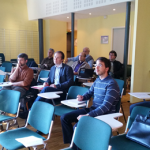
Members are legally allowed to mobilize resources from national or international research funds and are engaged in activities that address the Belmont Challenge.
Members
Americas
Inter-American Institute for Global Change Research (IAI)
Principal: Anna Stewart Ibarra
Principal’s Representative: Marcella Ohira
http://www.iai.int
Argentina
Jefadura de Gabinete de Ministros, Innovacion, Ciencia y Tecnologia (JGM-ICT)
Principal: Sofia Mormandi
Principal’s Representative: Maria Alejandra Davidziuk & Sebastián D’agrosa Okita
https://www.argentina.gob.ar/jefatura/innovacion-ciencia-y-tecnologia/
Australia
The Commonwealth Scientific and Industrial Research Organisation (CSIRO)
Principal: Peat Leith
www.csiro.au
Austria
The Austrian Science Fund (FWF)
Principal: Georg Kaser
Principal’s Representative: Reinhard Belocky
https://www.fwf.ac.at/en/
Brazil
São Paulo Research Foundation (FAPESP)
Principal: Jean Ometto & Alexandre Roccatto
fapesp.br
Santa Catarina Research Foundation (FAPESC)
Principal: Fabio Pinto
Principal’s Representative: Marcos Oliveira
https://fapesc.sc.gov.br/
Canada
Natural Sciences and Engineering Research Council of Canada (NSERC)
Principal: Katie Wallace
www.nserc-crsng.gc.ca
China
National Natural Science Foundation of China (NSFC)
Principal: Sheng YU
Principal’s Representative: Wencong LI
http://www.nsfc.gov.cn/publish/portal1/
Chinese Taipei
National Science and Technology Council (NSTC)
Principal: Minn-Tsong Lin
Principal’s Representative: Yue-Gau Chen
https://www.nstc.gov.tw
Academia Sinica
Principal: Yue-Gau Chen
Principal’s Representative: Candice S.C. Lung
https://www.sinica.edu.tw/en
European Union
European Union Commission (EC)
Principal:
ec.europa.eu
France
French Research Alliance for the Environment (AllEnvi)
Principal: François Jacq
Principal’s Representatives: Stéphanie Thiébault; Stéphane Blanc
www.allenvi.fr
French National Agency for Research (ANR)/
Ministry of Higher Education, Research and Innovation (MESRI)
Principal:
Principal’s Representative: Anne-Hélène Prieur-Richard anr.fr/en/ or www.enseignementsup-recherche.gouv.fr
Germany
Federal Ministry of Education and Research (BMBF)
Principal: Andreas Schmidt
Principal’s Representative: Viktoria Arnold and Sabine Korte
https://www.bmbf.de/en/index.html
India
Ministry of Earth Sciences (MoES)
Principal: M. Ravichandran
Principal’s Representative: Prashant Srivastava
http://moes.gov.in/
Italy
National Research Council (CNR)
Principal: Fabio Trincardi
Principal’s Representative: Isabella Vitali
www.isac.cnr.it
Côte d’Ivoire
Fonds pour la science, la technologie et l’innovation (FONSTI)
Principal: Annette Ouattawa
https://www.fonsti.org/
Japan
Ministry of Education, Culture, Sports, Science and Technology (MEXT)
Principal: Hiroshi Ikukawa
Principal’s Representative: Risa Yasui
www.mext.go.jp
Japan Science and Technology Agency (JST)
Principal: Shigeo Morimoto
www.jst.go.jp
Kenya
National Research Foundation Kenya (NRF-Kenya)
Principal: Prof. Chrispin Kowenje
https://www.nrf.go.ke/
Mexico
National Council for Sciences, Technology and Humanities (CONAHCYT) – *Observer*
https://conahcyt.mx/
The Netherlands
The Dutch Research Council (NWO)
Principal: Eric Beerkens
www.nwo.nl
Norway
Research Council of Norway (RCN)
Principal: Ida Ulleberg Jensen
Principal’s Representative:
http://www.forskningsradet.no/
Qatar
Qatar Research Development and Innovation Council (QRDIC)
Principal: Omar Boukhris
www.qnrf.org
South Africa
National Research Foundation (NRF)
Principal: Fulufhelo Nelwamondo
Principal’s Representative: Michael Nxumalo
www.nrf.ac.za
Sweden
Swedish Research Council for Environment, Agricultural Sciences, and Spatial Planning (Formas)
Principal: Britta Fängström
www.formas.se/en/
Swedish Research Council (VR)
Principal: Kim von Hackwitz
Principal’s Representative: Justiina Dahl
https://www.vr.se/english.html
Switzerland
Swiss National Science Foundation (SNSF)
Principal: Laure Ognois
Principal’s Representative: Dominique Lazo-Flores
www.snf.ch/en
Thailand
Thailand Science Research and Innovation (TSRI)
Principal: Pongpan Kaewtatip
https://www.tsri.or.th/
Türkiye
The Scientific and Technological Research Council of Türkiye (TÜBİTAK)
Principal: Teslime Gurel
https://www.tubitak.gov.tr/en
United Kingdom
Natural Environment Research Council (NERC)
Principal: Duncan Wingham
Principal’s Representative: Sarah Webb
http://www.nerc.ac.uk/
United States of America
National Science Foundation (NSF)
Principal: Maria Uhle
www.nsf.gov
Belmont Forum Partners are organizations that subscribe to the Belmont Challenge, but do not fund research and/or do not meet the criteria for membership.
Partners
Educational Partnerships for Innovation in Communities Network Inc. (EPIC-N)
Principal: Joel Rogers
https://www.epicn.org/
Canadian Foundation for Innovation (CFI)
Principal: Michael O’Neil
https://www.innovation.ca/
Adaptation Research Alliance (ARA)
Principal: Jesse Demaria-Kinney
https://southsouthnorth.org/portfolio_page/adaptation-research-alliance/
Global Development Network (GDN)
Principal: Francesco Obino
https://www.gdn.int/
Group on Earth Observations (GEO)
Principal: Yana Gevorgyan
https://www.earthobservations.org/index.php
The InterAcademy Partnership (IAP)
Principal: Peter McGrath
www.interacademies.org
International Science Council (ISC)
Principal: Salvatore Aricò
https://council.science/
International Institute for Applied Systems Analysis (IIASA)
Principal: Albert van Jaarsveld
iiasa.ac.at
Mountain Research Initiative (MRI)
Principal: Carolina Adler
https://www.mountainresearchinitiative.org
SysTem for Analysis, Research & Training (START)
Principal: Jon Padgham
start.org
United States Global Change Research Program (USGCRP)
Principal: Brian Leung
www.globalchange.gov
The Belmont Forum Secretariat serves as the administrative arm of the forum and is tasked with carrying out decisions made during the plenary meetings. The Secretariat, hosted at the Inter-American Institute for Global Change Research in Montevideo, Uruguay, consists of eight members and is headed by the Executive Director.
Secretariat Members
 Photo by Frank Wimart; Photo by Frank Wimart;Copyright © 2021 |
Nicole Arbour, Executive Director
Nicole joined the Belmont Forum as Executive Director of the Secretariat in July 2021. She comes to this role from the International Institute for Applied Systems Analysis (IIASA), in Austria where she is External Relations Manager and is actively involved in developing and maintaining relationships between IIASA its national members. Nicole has spent the bulk of her career at the international science interface, building and developing bilateral and multinational relationships and collaborations, and supporting relationships with international scientific organizations. She has held several roles in Canada, including Senior Advisor, International Relations at the National Research Council Canada (NRC), Team Lead for the UK’s Science and Innovation Network (SIN) in Canada, and has worked as a research scientist in the Canadian biotech sector. Nicole is passionate about science communication, science policy, evidence-informed decision-making, and science diplomacy. She holds a Ph.D. in Biochemistry from the University of Ottawa. |
| Yiwei Zhang, NSFC (China)
Yiwei has been working for NSFC as a Program Officer since 2019. In this role, she’s mainly responsible for communicating with partners on bilateral and multilateral programs and supporting other activities related to international organizations. Prior to her work at NSFC, Yiwei has obtained a double Master’s degree in Translation and Interpreting from Southeast University and Monash University. During her internship, Yiwei worked for the UNAIDS China office and assisted Strategic Information Adviser in collecting and disseminating information on national and provincial AIDS epidemic situation and supporting the work of UNAIDS in collaboration with national partners. |
|
 |
Kasan Aksornthong, TSRI (Thailand)
Kasan became a Program Officer at the office of Thailand Science Research and Innovation (TSRI) in 2019 after finishing his post-graduate degree in International Development Studies. He had previously worked at the Teachers’ Council of Thailand as a Foreign Affairs Officer, and at the secretariat office of Southeast Asian Ministers of Education Organization (SEAMEO) on an internship program. He joined the Belmont Forum Secretariat on behalf of TSRI. |
 |
Charles Nieuwkamp, European Commission
Charles has been working for the European Commission since January 1985, in various positions mainly in the financial sector and fraud investigations in the area of development aid worldwide. Currently assistant to the Director in DG Research and Innovation monitoring the financial aspects of a specific Framework Contract, budget and close contact with the Science Counsellors of our DG spread around the world. Member of IMA (International Management Assistants). |
 |
Fany Ramos Quispe, Fellow at Belmont Forum
Fany Ramos Quispe holds a B.S. in Environmental Engineering by the Polytechnic Institute of Mexico, and a MSc. in Environmental Change and International Development by the University of Sheffield in the United Kingdom. She worked with a variety of private and public organizations at the national and international levels. She has experience on projects related to renewable energies, waste and water management, environmental education, climate change, inter and transdisciplinar research, among others. After her postgraduate studies, she joined the Bolivian government mainly to support the international affairs related to climate change at the Plurinational Authority of Mother Earth, afterwards she joined the Centre for Social Research of the Vicepresidency as Climate Change Specialist. For several years now she combined academic and professional activities with side projects and activism for environmental and educational issues. She is founder and former chair (2019-2020) of the environmental engineers’ society of La Paz, and collaborates with different grassroots organizations. |
 |
Becca Barnes, AAAS Science & Technology Policy Fellow at NSF
Rebecca (Becca) Barnes joins the Belmont Forum as an AAAS Fellow working with the National Science Foundation and US Global Change Research Program. She earned her PhD in Forestry and Environmental Studies from Yale University and Masters’ degrees in Environmental Science and Public Affairs from Indiana University’s O’Neill School of Public and Environmental Affairs. During her tenure at Colorado College, her research centered at the intersection of society, hydrology, and geochemistry. As a biogeochemist she is interested in understanding how ecosystems process nitrogen and carbon and unraveling how disturbance (e.g., fire, land use change, warming) affects these critical global elemental cycles. Barnes was recognized for her work in 2019 with the Sulzman Award for Excellence in Education and Mentoring from the American Geophysical Union and an NSF CAREER Award in 2020. As part of her roles on the leadership of 500 Women Scientists and as co-PI of the PROGRESS mentoring program and the ADVANCEGeo Partnership, she develops, and implements, evidence-based trainings that aim to broaden equity and inclusion in STEM. |
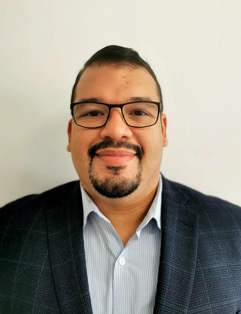 |
Hilario Espinoza, Fellow at Belmont Forum
Hilario Espinoza holds a B.S. in Biology from the University of Panama, a M.S. in Crop Protection from the University of Göttingen in Germany, and a M.S. in Project Management from the EUNCET Business School in Barcelona, Spain. He has more than a decade of research experience working at the interface of basic and applied science, with a focus on plant-fungi interactions. He also has expertise in science education and capacity-building and has worked with the government of the Republic of Panama to provide research and career opportunities for Panamanian students of all academic levels. Hilario joined the Belmont Forum secretariat through the IAI – STeP fellowship program. |
 |
Alex Guglielmoni, Brazil
Alex is a student in the master’s Program in International Relations at Universidade Federal de Santa Catarina in Brazil. Currently is researching about transnational/multinational companies from Canada and Norway in the Brazilian Electricity Market. He has more than 10 years working in business administrative routine in the areas of Supply Chain and Electricity Market. Alex received his bachelor’s degree in international relations from Universidade Tuiuti do Paraná in 2012, in the following years he received a Specialization degree in Marketing Management (in 2013 from Universidade Positivo), MBA degree in Financial Controllership (in 2018 from UNINTER), and an MBE degree in Renewable Energy (in 2020 from UNINTER). Alex works as a Project Coordinator at FAPESC in Florianópolis (Brazil) working with foreign policy, transnational companies, international institutions, science diplomacy and ocean multilateral agenda. |
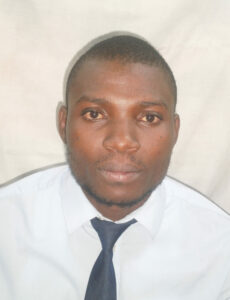 |
Emmanuel Chitechi Lutomia, Kenya
Currently a Research Grants Management Officer at the National Research Fund- Kenya and a postgraduate student at the University of Nairobi (Masters of Research and Public Policy). With a deeper interest in Agricultural and Environmental Policies. He has a bachelor’s degree in Development Studies with Information Technology from Maseno University. |
 |
Gabriella Servi
Gabriella is a Project Coordinator at Santa Catarina Research Foundation (FAPESC). She has studied Journalism and holds a degree in Marketing from the University of Itajaí (Univali), where she conducted research on the communication of SDGs practices across Higher Education Institutions in Brazil. Currently pursuing an MSc. in Business at the same institution, she focuses her study on Sustainability Transitions, knowledge communication, and Agri-Food systems in the Global South. As an active member of the Sustainability and Management Study Group (GESeG-Univali), she contributes to multidisciplinary discussions on sustainability. With over a decade of experience as a consultant in communication and marketing, she specializes in media strategies and cross-media content related to sustainability. Passionate about generating relevant research for more sustainable outcomes, she aims to leverage her expertise to create a positive impact on the world. |
Interns
Past Secretariat Members
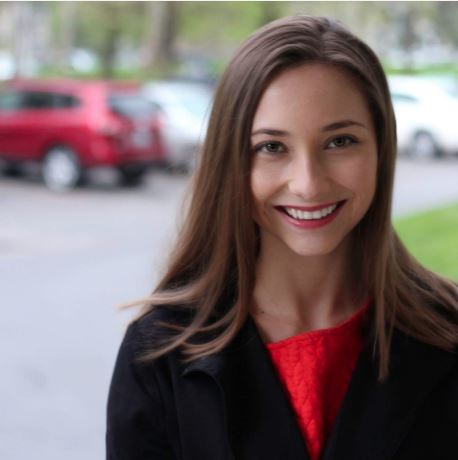 |
Megan Roussy, Fellow at Belmont Forum
Megan holds a PhD in Neuroscience from the University of Western Ontario and a Bachelor of Arts in Psychology from the University of New Brunswick. During graduate school, she developed a love for science communication and science policy initiatives. She worked as an editor at a science communication publication and currently chairs a committee within the Canadian Science Policy Centre (CSPC) where she studies the use of science in policymaking. Her aspirations to apply her training as a scientist to promote and develop science and tackle today’s top issues led her to join NSERC as a Mitacs Canadian Science Policy Fellow in 2022. At NSERC, she has been working to promote parliamentary engagement and international collaboration. |
 |
Brian Leung, AAAS Science & Technology Policy Fellow at NSF
As a trained neuroscientist and immunologist, Brian Leung’s professional interest include domestic and global biosecurity and biotechnology. He received his B.S. in Chemistry from Drexel University and his PhD in Neuroscience from the University of Southern California. Furthermore, he has received additional training in Immunology at the University of Zurich and continued his post-doctoral work on disease genetics in Hong Kong University of Science and Technology. Given his global experience, pandemic-related issues remain as one of his many biosecurity interests, however his short-term goals are to specialize on the intersection of climate change, human health, and science diplomacy. By filling in this knowledge gap as an AAAS Science and Technology Policy Fellow and Belmont Forum Secretariat, Brian hopes to develop a more comprehensive overview and foster interorganizational collaboration on issues related to science diplomacy, biosecurity, and climate change in our ever-changing world. |
 |
Jihye Hwang, Intern
Jihye Hwang completed her Master’s program at Tsinghua University in China. She joined the Belmont Forum Secretariat as an intern through Global Environmental Leaders Program hosted by the Ministry of Environment of Korea and the Korea Environment Corporation. |
 |
Camellia Kodia, Intern
Camellia Kodia is a student from the Ivory Coast. She graduated from the University of Ottawa with a Bachelor’s degree in Environmental Economics and Public Policy. She decided to continue her studies at the same university by pursuing a Master’s degree in Geography with a specialization in Anthropocene. Later, she joined the Belmont Forum as an intern in order to develop her skills and build her professional experience. In addition, she is involved in non-profit organizations and wants to make Africa more aware of the challenges of climate change. |
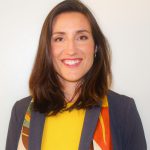 |
Amanda Shores, AAAS Science and Technology Policy Fellow at NSF
Amanda is an ecosystem geographic scientist with a transdisciplinary focus on water sustainability, industrial processes, and community vulnerability. She completed her Ph.D. training in 2017 at Colorado State University studying strategies for reducing water use and environmental contamination in the oil and gas sector. For her Post-Doctoral work, she functioned as the Program Manager for the Secondary Cities Initiative, a Dept. of State and Colorado State University collaboration focused on geospatial mapping and analysis of resources in rapidly expanding, resource-limited cities around the world. As a AAAS S&TP Fellow and a Belmont Forum Secretariat member, Amanda hopes to foster interorganizational collaboration and coproduction research principles that address water security and environmental challenges. |
 |
Shweta Ganapati, NSERC (Canada)
Shweta joined NSERC as a Mitacs Canadian Science Policy Fellow in 2020. She has since been working on a broad range of policy priorities at NSERC, as well as taking on key international files including the European Union and Germany. Before joining NSERC, Shweta was Program Manager at the Canadian Science Policy Centre (CSPC) where she led several projects, including a workshop program for capacity building in science policy, creating a membership model to engage stakeholder organizations, and managing the operations of 60+ volunteers to execute CSPC’s annual conferences in 2019 and 2020. From 2017 to 2019, Shweta was a Research Scientist at a Maryland based biotech start-up, SD Nanosciences, developing a low-cost, easy to assemble, surfactant-based vaccine platform. Shweta holds a PhD in Organic and Analytical Chemistry from University of Maryland, USA and a Master’s and Bachelor’s degree in Chemistry from St. Stephen’s College, University of Delhi, India. |
![Roel Marsman Profile Photo - Source: [Author Unknown]. Roel Marsman. Digital Image. [Source Unknown], [Date Published Unknown]](http://www.belmontforum.org/wp-content/uploads/2017/03/Paint_Roel.jpg) |
Roel Marsman, European Commission
After graduating in 2007 as a historian in the Netherlands, Roel worked as a teacher in Türkiye, Ghana, and Belgium until beginning to work for the European Commission in 2015. Roel works as an administrative agent for the Research and Innovation Department in Brussels where he contributes to the logistics and governance of the Belmont Forum. |
 |
Meagan Postema, AAAS Science and Technology Policy Fellow at NSF
Meagan received her B.S. in Biomedical Sciences from Central Michigan University in 2012 and her Ph.D. in the Department of Cell and Developmental Biology from Vanderbilt University in 2019. During graduate school, Meagan developed a passion for science education and STEM outreach at the K-12 level. She became involved with several local non-profits where she helped develop workshops and activities to foster excitement about science and an understanding of potential STEM career paths. This community involvement led to an interest in science policy and Meagan became involved in advocacy at the state level supporting heart and Alzheimer’s research. She was a AAAS Science and Technology Policy Fellow at the NSF where she was a contributing member of the Belmont Forum Secretariat. |
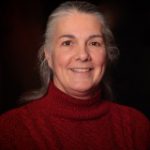 |
Sylvie Roy, NSERC (Canada)
Sylvie has a Bachelor of Science degree in Biochemistry and a Master of Science degree in Microbiology from Université de Montréal. She obtained a Ph.D. in Oceanography from Université du Québec in Rimouski in 1999. Her research interests are mostly in the fields of biological and chemical oceanography. She has gained research experience in university and government settings through work as a post-doctoral student within the Department of Fisheries and Oceans (DFO) across Canada, at the Maurice Lamontagne Institute and the Bedford Institute of Oceanography. In 2003, she joined the Canadian ‘Surface Ocean Lower Atmosphere Study’ (C-SOLAS) secretariat at Dalhousie University (Halifax, Canada) and served as Cruise Coordinator, Executive Director and Data Manager. In 2005, Sylvie won the Executive Director position for the International Project Office (IPO) of the Integrated Marine Biogeochemistry and Ecosystems Research (IMBER) located in Brest, France. She was responsible for implementation of Scientific Steering Committee (SSC) decisions, planning and organization of international scientific meetings, seeking and managing funds to support project offices and program related scientific activities. She liaised and assured good collaboration with advisory bodies, international projects, international partners and non-governmental organizations. Since her return to Canada in 2009, she has joined the Natural Science and Engineering Research Council of Canada (NSERC) in Ottawa, Canada. She serves as a Program Officer and manages pograms involving international collaborations. |
![Erica Key Profile Photo - Source: [Author Unknown]. Erica Key. Digital Image. [Source Unknown], [Date Published Unknown]](http://www.belmontforum.org/wp-content/uploads/2017/05/paint_passport_photo_erica.png) |
Erica Key, Executive Director
Erica joined the Belmont Forum as Executive Director of the Secretariat in June 2015. She currently serves as a Senior Advisor. She leads membership and strategic development for the Belmont Forum, building connections between funders and organizations invested in global change research. She forges these new connections to ensure that the Belmont Forum Challenge–which focuses on advancement of interdisciplinary, transdisciplinary, and multilateral scientific research to inform human action–is met and the value-added of this approach is demonstrated. Erica draws on her experience as a program director at the U.S. National Science Foundation, interagency agreements lead, and a global change researcher to elevate Belmont Forum activities through transparent communication, flexible partnering, and active engagement with the international research and data communities. |
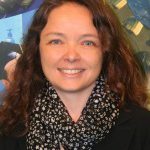 |
Judit Ungvari, AAAS Science and Technology Policy Fellow
Judit is a AAAS Science & Technology Policy Fellow at the US National Science Foundation’s Directorate for Geosciences. She is an ecologist by training, with expertise in aspects of biodiversity research and avian biology in tropical habitats. She studied birds in the Peruvian Amazon region combining both lab- and field-based techniques and received her Ph.D. in Zoology with a certificate and concentration in Tropical Conservation and Development at the University of Florida. She also worked as a postdoctoral scholar at the National Zoo of the Smithsonian Institute, addressing conservation issues in agroecosystems in Colombia. She is involved in local capacity building and community outreach both in the USA and Latin America. Within the Belmont Forum, she is working on supporting the secretariat’s activities, communication, outreach, partnership building, organizing scoping workshops and drafting call texts for various upcoming CRA’s and continuing the efforts of existing teams. |
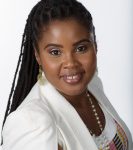 |
Makyba Charles-Ayinde, AAAS Science and Technology Policy Fellow
Makyba is a AAAS Science & Technology Policy Fellow in the U.S. National Science Foundation’s Geosciences Directorate. She received her Ph.D. in Public Health with a concentration in Environmental and Global Health and certification in One Health techniques. Her expertise lies in her resilience work with vulnerable populations and communities before and during both natural and anthropogenic environmental disasters in the Gulf and Southeast United States regions. She will be working closely with the Transdisciplinary Science for Oceans Research CRA as well as the upcoming CRAs – Disaster Risk, Resilience and Reduction and Climate, Environment and Health. She is also part of the core team shaping the SRI2020 marquis event and the forums’ participation at the UN Environment Assembly and Science Policy Business Forum. She hopes to widen the forums’ outreach and has started in this effort by facilitating a townhall about transdisciplinary research at the AGU 2018 fall meeting and hopes to work with NSF-C and CARICOM in this same vein. She is also working with the e-I&DM Enabling Fair Data Project to determine metrics to assess the Data and Digital Outputs Management Plan. Makyba is very interested in engaging in even more projects that promote the use of transdisciplinary research and drive the vision of the forum forward. |
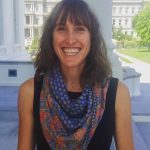 |
Susanna Ehlers, NSF (USA), Communications Director
Susanna Ehlers is the Science-Policy Program Officer with the Inter-American Institute for Global Change Research (IAI) in Montevideo, Uruguay, and currently acts as the IAI representative to the Belmont Forum on CRA activities. She is a Physical Geographer with experience working in research, industry, education, and government. Susanna started her career as an Air Quality Scientist for the US Forest Service. She pivoted from scientist to science-policy while working in the International and Integrated Activities within the Geosciences Directorate of the National Science Foundation (NSF). While at NSF, Susanna served as the Communications Officer for the Belmont Forum Secretariat from 2016-2018, where she oversaw the website redesign and enhanced internal and external communications through social media and outreach materials, including training videos. Susanna was instrumental in assisting the NSF with its contributions and commitments to various CRAs, acting as the Thematic Program Office (TPO) for the Food-Water-Energy Nexus / Sustainable Urbanisation Global Initiative (SUGI) and Transformations 2 Sustainability CRAs. Susanna is now working to advance the IAI’s policy-oriented science throughout Latin American and the Caribbean. Susanna holds a Master of Science in Environmental Science and Management from Carnegie Mellon University and a Bachelor of Science with Honors in Physical Geography from University of Wisconsin – Madison. |
| Kelly Watson, NSF (USA) | |
| Carrie Seltzer, NSF (USA) |
The Belmont Forum Steering Committee is led by two co-chairs, elected by the membership for 3-year terms. Since 2015, it is required that co-chairs first serve on the Steering Committee before being elected to the co-chair position.
Steering Committee Members
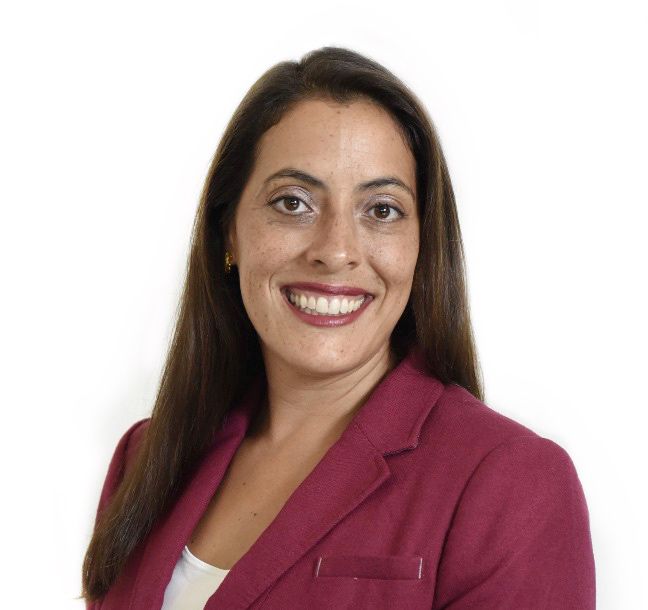 |
Anna Stewart Ibarra, co-chair, IAI (Americas) |
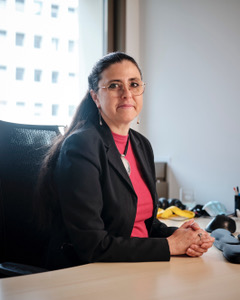 |
Anne-Hélène Prieur-Richard, co-chair, ANR (France) |
 |
Minn-Tsong Lin, NSTC (Chinese Taipei) |
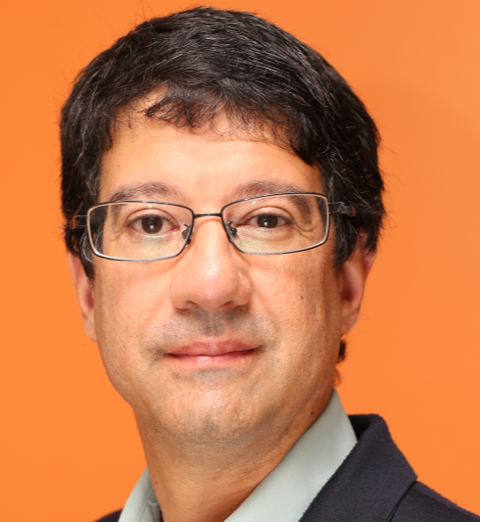 |
José Antonio Puppim de Oliveira, FAPESP (Brazil)) |
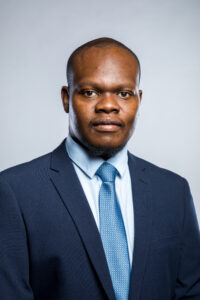 |
Fulufhelo Nelwamondo, NRF (South Africa) |
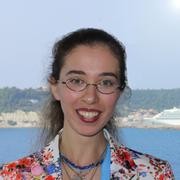 |
Şiir Kılkış, TUBITAK (Türkiye). |
 |
Ida Ulleberg Jensen, RCN (Norway) |
Past Co-Chairs
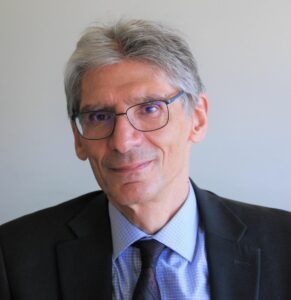 |
Marcos Regis de Silva, IAI (Americas) |
 |
Maria Uhle, NSF (USA) |
 |
Kate Hamer, NERC |
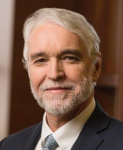 |
Tim Killeen, NSF |
 |
Alan Thorpe, NERC |
 |
Steven Wilson, ICSU |
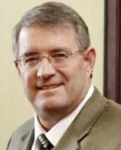 |
Albert van Jaarsveld, NRF |
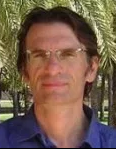 |
Patrick Monfray, ANR |
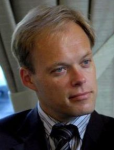 |
Kurt Vandenberghe, European Commission |
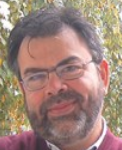 |
Gilberto Camara, FAPESP |
| Satoru Ohtake, MEXT |
The Group of Program Coordinators is the body of program representatives involved in each CRA development, proposal review, and award process. Because different organizations invest in different themes, the composition of the Group of Program Coordinators is different for each CRA. It is not required to be a Belmont Forum member to provide funding support to a CRA. Many organizations in the Groups of Program Coordinators are not members and participate according to their institutional interests.Each Group of Program Coordinators elects a Thematic Programme Office for that CRA. The Thematic Programme Office must include at least one representative from a Belmont Forum member organization. The Thematic Programme Office provides oversight through the CRA development and implementation process, including hosting the review process, managing the CRA timeline, and issuing decline letters.
Organizations participating in the Group of Program Coordinators and Thematic Programme Offices for past CRA’s
Systems of Sustainable Consumption and Production
Thematic Programme Office:
- Ministry of Science and Technology (MoST)
- Deutsche Forschungsgemeinschaft (DFG)
- Japan Science and Technology Agency (JST)
- Research Council of Norway (RCN)
- Swedish Research Council for Env, Agric Sci & Spatial Planning (FORMAS)
- Trinidad and Tobago Research and Development Impact Fund
Program Management Unit for Human Resources & Institutional Development, Research and Innovation (PMU-B) - The Scientific and Technological Research Council of Türkiye (TÜBITAK)
- National Science Foundation (NSF)
Integrated Approaches to Human Migration/Mobility in an Era of Rapid Global Change
Thematic Programme Office:
- Austrian Science Fund (FWF)
- São Paulo Research Foundation (FAPESP)
- French National Research Agency (ANR)
- Research Council of Norway (RCN)
- National Research Foundation (NRF)
- Swedish Research Council for Env, Agric Sci & Spatial Planning (FORMAS)
- Trinidad and Tobago Research and Development Impact Fund (RDI)
- The Scientific and Technological Research Council of Türkiye (TÜBITAK)
- National Science Foundation (NSF)
- Future Earth (FE)
- Inter-American Institute for Global Change Research (IAI)
- Swedish International Development Cooperation Agency (SIDA)
Transdisciplinary Research for Pathways to Sustainability (Pathways 2020)
Thematic Programme Office: NSF
- Austrian Science Fund (FWF)
- São Paulo Research Foundation (FAPESP)
- Ministry of Science and Technology (MoST)
- French National Alliance for Environmental Research (AllEnvi)
- French National Research Agency (ANR)
- Deutsche Forschungsgemeinschaft (DFG)
- Research and Grant Institute of Ghana (REGIG)
- Future Earth (FE)
- Inter-American Institute for Global Change Research (IAI)
- Group on Earth Observations (GEO)
- Nigerian Institute of Medical Research (NIMR)
- National Research Foundation (NRF)
- The Scientific and Technological Research Council of Türkiye (TÜBITAK)
- National Science Foundation (NSF)
Towards Sustainability of Soils and Groundwater for Society (Soils 2020)
Thematic Programme Office: ANR
- São Paulo Research Foundation (FAPESP)
- Ministry of Science and Technology (MoST)
- French National Alliance for Environmental Research (AllEnvi)
- French National Research Agency (ANR)
- National Research Council of Italy, Department Earth System Sciences and Environmental Technologies (CNR-DSSTTA)
- Japan Science and Technology Agency (JST)
- Qatar National Research Fund (QNRF)
- Russian Foundation for Basic Research (RFBR)
- King Abdullah University of Science and Technology (KAUST)
- National Science Foundation (NSF)
Climate, Environment and Health (CEH 2019)
Thematic Programme Office: UKRI
- São Paulo Research Foundation (FAPESP)
- Ministry of Science and Technology (MoST)
- PASRES (PASRES)
- Academy of Finland (AKA)
- Research Council of Norway (RCN)
- The Swedish Research Council for Health, Working Life and Welfare in collaboration with the Swedish Research Council (Vetenskapsradet) (Forte)
- The Scientific and Technological Research Council of Türkiye (TUBITAK)
- Met Office (Met)
- UK Research and Innovation (UKRI)
- National Institutes of Health, National Institute for Environmental Health Sciences (NIEHS) and Fogarty International Center (FIC). (NIH)
- National Oceanic and Atmospheric Administration (NOAA)
- National Science Foundation (NSF)
- National Institute of Food and Agriculture (NIFA)
Disaster Risk, Reduction and Resilience (DR3 2019)
Thematic Programme Office: MoST
- São Paulo Research Foundation (FAPESP)
- Ministry of Science and Technology (MOST)
- National Research Council of Italy (CNR)
- Japan Science and Technology Agency (JST)
- Qatar National Research Fund (QNRF)
- UK Research and Innovation (UKRI)
- National Science Foundation (NSF)
- Vietnam Institute of Geosciences and Mineral Resources (VIGMR)
Resilience in Rapidly Changing Arctic Systems (Arctic II 2019)
Thematic Programme Office: NSF and RFBR
- Natural Sciences and Engineering Research Council of Canada (NSERC)
- Danish Agency for Science and Higher Education (DAFSHE)
- National Research Agency (ANR)
- Icelandic Center for Research (RANNIS)
- Japan Science and Technology Agency (JST)
- Netherlands Polar Programme (NPP) of the Netherlands Organization for Scientific Research (NWO)
- Research Council of Norway (RNC)
- Russian Foundation for Basic Research (RFBR)
- Swedish Research Council for Environment, Agricultural Sciences and Spatial Planning (FORMAS)
- U.S. Department of the Interior, Bureau of Ocean Energy Management (BOEM)
- National Science Foundation (NSF)
Transdisciplinary Research for Ocean Sustainability (Oceans 2018)
Thematic Programme Office: FORMAS
- Oceans and Atmosphere, Commonwealth Scientific and Industrial Research Organisation (CSIRO)
- São Paulo Research Foundation (FAPESP)
- National Research Agency (ANR)
- Federal Ministry of Education and Research (BMBF)
- Icelandic Centre for Research (RANNIS)
- Ministry of Earth Sciences (MoES)
- Japan Science and Technology Agency (JST)
- The Research Council of Norway (RCN)
- Department of Science and Technology (DOST-PCIEERD)
- Russian Foundation for Basic Research (RFBR)
- King Abdullah University of Science and Technology (KAUST)
- National Research Foundation (NRF)
- Swedish Research Council for Env, Agric Sci & Spatial Planning (FORMAS)
- Swedish International Development Cooperation Agency (SIDA)
- Bureau of Ocean Energy Management (BOEM)
- National Science Foundation (NSF)
Science-driven e-Infrastructure Innovation (SEI 2018)
Thematic Programme Office: ANR
- National Science Foundation (NSF)
- Japan Science and Technology Agency (JST)
- São Paulo Research Foundation (FAPESP)
- French National Research Agency (ANR)
- Ministry of Science and Technology (MOST)
Scenarios of Biodiversity and Ecosystem Services II (Biodiversity II 2017)
Thematic Programme Office: ANR, with BiodivERsA as the BiodivScen ERA-net Coordinator
- Ministry of Science, Technology and Productive Innovation (MINCyT)
- Austrian Science Fund (FWF)
- Belgian Federal Science Policy Office (BELSPO)
- National Fund for Scientific Research (FNRS)
- São Paulo Research Foundation (FAPESP)
- Bulgaria National Science Fund (BNSF)
- Natural Sciences and Engineering Research Council (NSERC)
- Fonds de Recherche du Québec (FRQ)
- Estonian Research Council (ETAG)
- Academy of Finland (AKA)
- French National Research Agency (ANR)
- German Research Foundation (DFG)
- German Aerospace Center Project Management Agency (DLR-PT)
- Irish Environmental Protection Agency (EPA)
- Strategic Support Programme for Scientific Research (PASRES)
- Research Council of Lithuania (RCL)
- Research Council of Norway (RCN)
- National Science Centre (NCN)
- Executive Unit for Financing Higher Education, Research, Development and Innovation (UEFISCDI)
- Ministry of Economy and Competitiveness – State Research Agency (MINECO-AEI)
- Swedish Research Council for Environment, Agricultural Sciences, and Spatial Planning (Formas)
- Swiss National Science Foundation (SNSF)
- Netherlands Organization for Scientific Research (NWO)
- The Scientific and Technological Research Council of Türkiye (TÜBİTAK)
- National Science Foundation (NSF)
Transformations to Sustainability (T2S 2016) (joint with ISSC, NORFACE ERA-net co-funding)
Thematic Programme Office: NSF and NWO, with NWO as the NORFACE ERA-net Coordinator
- Academy of Finland (AKA)
- The French National Research Agency (ANR)
- Slovenian Research Agency (ARRS)
- German Aerospace Center (DLR)
- European Commission (EC)
- Economic and Social Research Council (ESRC)
- São Paulo Research Foundation (FAPESP)
- Luxembourg National Research Fund (FNR)
- National Fund for Scientific Research (FNRS)
- Research Foundation – Flanders (FWO)
- Irish Research Council (IRC)
- International Social Science Council (ISSC)
- Japan Science and Technology Agency (JST)
- Ministry of Science and Technology (MOST)
- NordForsk
- National Science Foundation (NSF)
- The Netherlands Organisation for Scientific Research (NWO)
- Research Council of Norway (RCN)
- Swiss National Science Foundation (SNSF)
- Swedish Research Council (VR)
Food-Water-Energy Nexus (Nexus 2016) (co-branded with Future Earth, joint with JPI-Urban Europe, SUGI ERA-Net co-funding)
Thematic Programme Office: NSF, with Connected Places Catapult / InnovateUK as the SUGI ERA-Net Coordinator
- Arts and Humanities Research Council (AHRC)
- Engineering and Physical Sciences Research Council (EPSRC)
- Economic and Social Research Council (ESRC)
- InnovateUK
- Academy of Finland (AKA)
- The French National Research Agency (ANR)
- Slovenian Research Agency (ARRS)
- Federal Ministry of Education and Research (BMBF)
- European Commission (EC)
- São Paulo Research Foundation (FAPESP)
- The Foundation for Science and Technology (FCT)
- Austrian Research Promotion Agency (FFG)
- Formas
- Federative Research Structure (FRS)
- National Fund for Scientific Research (FNRS)
- Research Foundation – Flanders (FWO)
- Innovation Fund Denmark (IFD)
- Innoviris
- Japan Science and Technology Agency (JST)
- Ministry of Science, Technology and Productive Innovation (MINCyT)
- Ministry of Education, University and Research (MIUR)
- Ministry of Science and Technology (MOST)
- National Science Centre (NCN)
- National Science Foundation (NSF)
- Netherlands Research Organisation (NWO)
- Qatar National Research Foundation (QNRF)
- Research Council of Lithuania (RCL)
- Research Council of Norway (RCN)
- Research Promotion Foundation (RPF)
- Swedish Energy Agency
- Tekes
- The Scientific and Technological Research Council of Türkiye (TÜBİTAK)
- Executive Unit for Financing Higher Education, Research, Development and Innovation (UEFISCDI)
- State Education Development Agency (VIAA)
- VINNOVA
Climate Predictability and Inter-Regional Linkages (Climate 2015) (joint with JPI-Climate)
Thematic Programme Office: ANR and MoES
- The French National Research Agency (ANR)
- Federal Ministry of Education and Research (BMBF)
- Federal Ministry of Science, Research and Economy (BMWFW)
- São Paulo Research Foundation (FAPESP)
- Formas
- Japan Science and Technology Agency (JST)
- Ministry of Education, Culture, Sports, Science and Technology (MEXT)
- Ministry of Earth Sciences (MoES)
- Natural Environment Research Council (NERC)
- National Natural Science Foundation of China (NSFC)
- The Netherlands Organisation for Scientific Research (NWO)Qatar National Research Foundation (QNRF)
- Research Council of Norway (RCN)
Mountains as Sentinels of Change (Mountains 2015)
Thematic Programme Office: CNR-DTA and NSF
- The French National Research Agency (ANR)
- Federal Ministry of Science, Research and Economy (BMWFW)
- Department of Earth System Science and Environmental Technologies of the National Research Council (CNR-DTA)
- German Research Foundation (DFG)
- São Paulo Research Foundation (FAPESP)
- National Science Foundation (NSF)
- National Natural Science Foundation of China (NSFC)
Arctic Observing and Science for Sustainability (Arctic I 2014)
Thematic Programme Office: NSF
- The French National Research Agency (ANR)
- Federal Ministry of Education and Research (BMBF)
- Bureau of Ocean Energy Management (BOEM)
- Department of Earth System Science and Environmental Technologies of the National Research Council (CNR-DTA)
- Centre National de la Recherche Scientifique (CNRS)
- Japan Science and Technology Agency (JST)
- Ministry of Earth Sciences (MoES)
- NordForsk
- Natural Sciences and Engineering Research Council of Canada (NSERC)
- National Science Foundation (NSF)
- National Natural Science Foundation of China (NSFC)
- The Icelandic Centre for Research (RANNIS)
- Research Council of Norway (RCN)
- Russian Foundation for Basic Research (RFBR)
- Social Sciences and Humanities Research Council (SSHRC)
Biodiversity and Ecosystem Services (Biodiversity I 2014)
Thematic Programme Office: ANR and DFG
- The French National Research Agency (ANR)
- The Commonwealth Scientific and Industrial Research Organisation (CSIRO)
- German Research Foundation (DFG)
- São Paulo Research Foundation (FAPESP)
- Ministry of Education, Culture, Sports, Science and Technology (MEXT)
- Japan Science and Technology Agency (JST)
- Ministry of Earth Sciences (MoES)
- National Research Foundation (NRF)
- National Science Foundation (NSF)
- National Natural Science Foundation of China (NSFC)
- Research Council of Norway (RCN)
Food Security and Land Use Change (Food 2013) (joint with JPI-FACCE)
Thematic Programme Office: FAPESP
- The French National Research Agency (ANR)
- The Commonwealth Scientific and Industrial Research Organisation (CSIRO)
- São Paulo Research Foundation (FAPESP)
- Japan Science and Technology Agency (JST)
- Ministry of Agriculture and Rural Development (MOARD)
- Ministry of Earth Sciences (MoES)
- Natural Environment Research Council (NERC)
- Biotechnology and Biological Sciences Research Council (BBSRC)
- Economic and Social Research Council (ESRC)
- National Research Foundation (NRF)
- National Science Foundation (NSF)
- Research Promotion Foundation (RPF)
- Swiss National Science Foundation (SNSF)
- Agriculture and Food Development Authority (Teagasc)
- Executive Unit for Financing Higher Education, Research, Development and Innovation (UEFISCDI)
- Wageningen University and Research Centre (WUR)
Coastal Vulnerability (Coastal 2012)
Thematic Programme Office: NERC, NSF
- The French National Research Agency (ANR)
- The Commonwealth Scientific and Industrial Research Organisation (CSIRO)
- German Research Foundation (DFG)
- São Paulo Research Foundation (FAPESP)
- Japan Society for the Promotion of Science (JSPS)
- Ministry of Earth Sciences (MoES)
- Natural Environment Research Council (NERC)
- National Research Foundation (NRF)
- National Science Foundation (NSF)
- Russian Foundation for Basic Research (RFBR)
Freshwater Security (Freshwater 2012)
Thematic Programme Office: NERC, NSF
- The French National Research Agency (ANR)
- The Commonwealth Scientific and Industrial Research Organisation (CSIRO)
- German Research Foundation (DFG)
- São Paulo Research Foundation (FAPESP)
- Japan Society for the Promotion of Science (JSPS)
- Ministry of Earth Sciences (MoES)
- Natural Environment Research Council (NERC)
- Economic and Social Research Council (ESRC)
- Biotechnology and Biological Sciences Research Council (BBSRC)
- National Research Foundation (NRF)
- Natural Sciences and Engineering Research Council of Canada (NSERC)
- National Science Foundation (NSF)
- Russian Foundation for Basic Research (RFBR)
How to Become a Member or Partner
New organizations are elected to Belmont Forum membership each year at the Forum’s plenary meeting. Members are funding organizations that can provide resources to Collaborative Research Actions.There are three requirements to be considered for membership:
- participation by the organization in a Collaborative Research Action
- monetary or in-kind contribution to the Secretariat
- identification of a principal representative from the organization to correspond on Forum business
Organizations who have met these criteria submit a letter of interest on organizational letterhead to the Secretariat from a lead person with authority over partnerships. The Secretariat will respond and work with the organization to ensure it is in compliance with the three requirements and communicate membership interest to our existing members.
At the annual plenary meeting, existing members cast their votes to welcome new members to the Forum. Once membership is approved and all requirements verified, the organization has full voting rights, is invited to all plenary meetings and closed sessions at those meetings, can lead and propose themes for Collaborative Research Actions, and can serve on the Steering Committee or as Co-Chair.
For organizations that are not principally funding institutions, another option is available to join the Forum. Through a partnership mechanism, these organizations can work closely with the Forum as it develops its funding, training, and data agendas. Partners do not have voting rights but are invited to all plenary meetings and may participate in closed plenary sessions.
Organizations interested in applying for partnership with the Forum submit a letter of interest on organizational letterhead to the Secretariat from a lead person with authority over partnerships. In the letter, the organization indicates areas of mutual benefit between the Forum and itself. The letter is reviewed by the Steering Committee to ensure that the organization has interests aligned with the Forum and has identified how the organization can help the Forum attain its goals. The application is then shared with the full membership for e-voting to decide on partnership with the interested institution.
Note: Partnership as described above is the process of being identified as a partner organization to the Forum. In Collaborative Research Actions, organizations may partner to support research projects in a particular thematic area. This is a different relationship in which an organization joins the Group of Program Coordinators for a call and follows the steps outlined in the CRA Handbook.

